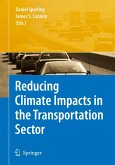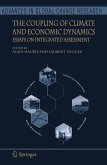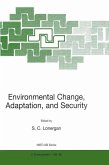The second part develops a dynamic Computable General Equilibrium model of the Mexican economy, paying attention to the energy sector and its linkages with other aspects of the aggregate economy. Conclusions for Mexico are placed in the wider context of the Americas. The effects of climate change policy are contrasted with that in Venezuela, Argentina and Brazil. Finally, by employing an integrated US-Mexican model the authors look at possible advantages of emissions trading between these two countries.
This book could serve as a supplemental text in a number of different classes in environmental and resource economics, development, modelling, and negotiation of international treaties. Executives from the energy sector would also benefit in the United States, Mexico, and throughout Latin America.
Dieser Download kann aus rechtlichen Gründen nur mit Rechnungsadresse in A, B, BG, CY, CZ, D, DK, EW, E, FIN, F, GR, HR, H, IRL, I, LT, L, LR, M, NL, PL, P, R, S, SLO, SK ausgeliefert werden.









